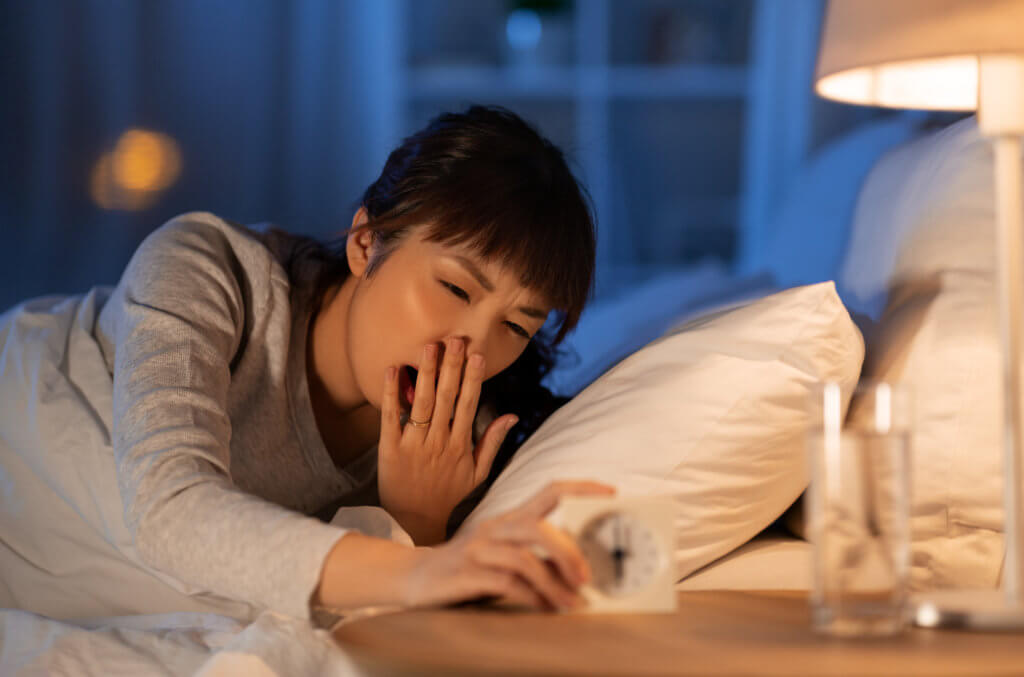STOCKHOLM, Sweden — It turns out that hitting the snooze button isn’t so bad after all. Researchers in Sweden are challenging the long-held belief that sleeping in for a few extra minutes each day can have negative effects on sleep and cognitive processes. Scientists at Stockholm University say there’s simply no real evidence supporting that claim, and they’ve found that snoozing may actually support the waking process for regular snoozers.
Many people have wrestled with their alarm clock at some point, and hitting the snooze button offers a few minutes of sweet restful relief from waking up, but at what cost? For years, snoozing has been frowned upon as “lazy” and perhaps even damaging to both one’s sleep and the brain’s ability to wake properly. Study authors set out to investigate how common snoozing is and what effects the behavior has on sleep, sleepiness, mood, and cognitive abilities.
“Our findings show that those who snooze on average sleep slightly shorter and feel more drowsy in the morning compared to those who never snooze. But there were no negative effects of snoozing on cortisol release, morning tiredness, mood, or sleep quality throughout the night,” says Tina Sundelin, a researcher at Stockholm University and lead author of the paper, in a media release.
For the first experiment, a total of 1,732 individuals answered questions regarding their morning habits, including how often they use the snooze button. Many reported snoozing on a regular basis. Snoozing tended to be common among young adults and evening people (night owls), and the most common reason for snoozing was feeling too tired to get out of bed when the alarm went off.

During a second experiment, a group of 31 regular snoozers spent two nights in a sleep lab and had their sleep measured in greater detail. On one of those mornings, participants were permitted to snooze an extra 30 minutes, but on the other morning, they had to get up immediately with an alarm. The results turned out to be quite calming for the snoozers. Despite participants’ sleep being disturbed during the half hour of snoozing, most of them still got quite a lot of extra shuteye (20+ minutes).
Researchers explain this means their total night’s sleep was barely affected. Additionally, among those placed in the snoozing cohort, no one had to wake up from deep sleep – and snoozers performed a bit better on cognitive tests right upon waking. It’s also worth noting there were no clear effects of snoozing pertaining to mood, sleepiness, or the amount of cortisol in the saliva.
”Our study shows that half an hour of snoozing does not have negative effects on night sleep or sleep inertia, the feeling of not quite being alert in the morning. If anything, we saw some positive outcomes, such as a decreased likelihood of waking from deep sleep. When participants were allowed to snooze they were also a bit more quick-thinking right when they got up,” Sundelin concludes.
“It’s of course important to remember that the study only included people who are regular snoozers and find it easy to go back to sleep after each alarm. Snoozing is most likely not for everyone.”
The study is published in the Journal of Sleep Research.
You might also be interested in:
- Best Alarm Clocks In 2023: Top 5 Products Most Recommended By Experts
- Best Sleep Trackers: Top 5 Wearable Monitors Most Recommended By Experts
- Best Mattresses: Top 5 Brands Most Recommended By Sleep Experts

